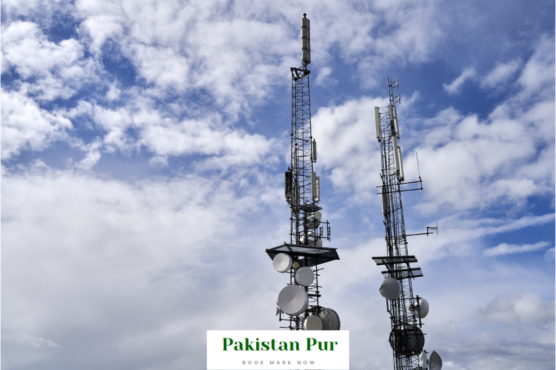
Table of Contents
Telecommunication Engineering is a field of study that focuses on the design, development, and maintenance of voice and data communication systems, enabling seamless and efficient transmission of information across various channels.
BS Telecommunication Engineering in Pakistan is a comprehensive 4-year degree program offered by numerous esteemed institutions like the COMSATS Institute of Information Technology, University of Engineering, and others.
This program concentrates on equipping students with vital communication skills and proficiency in various communication techniques and networking.
It focuses on one of the leading sectors of today’s modern engineering field – telecommunication systems, playing a crucial role in the seamless transmission of voice and data information across different channels.
Graduates from this program contribute significantly to Pakistan’s growing digital infrastructure and technological advancements.
This BS Telecommunication Engineering Guide is a part of the series on the best degrees after FSc Pre Engineering. Read the full list of degrees here.
Best Fields after FSc Pre Engineering in Pakistan
BS Telecommunication Engineering Universities in Pakistan
These telecommunication engineering universities in Pakistan are offering BS Telecommunication Engineering in Pakistan. Use the search function to find a university.
| Institution | City | Program | Public/Private |
|---|---|---|---|
| The Islamia University Of Bahawalpur | Bahawal Pur | B.Sc. 4 Years | Public |
| University Of Science & Technology | Bannu | BS , 4 Years | Public |
| Government College University | Faisalabad | BS , 4 Years | Public |
| Air University | Islamabad | BE , 4 Years | Public |
| Mehran University Of Engineering & Technology | Jamshoro | BE , 4 Years | Public |
| University Of Sindh | Jamshoro | BS , 4 Years | Public |
| Dawood University Of Engineering And Technology | Karachi | BE , 4 Years | Public |
| NED University Of Engineering & Technology | Karachi | BE , 4 Years | Public |
| Hazara University | Mansehra | BS (HONS) , 4 Years | Public |
| University Of Engineering & Technology ( Mardan Campus ) | Mardan | B.Sc. 4 Years | Public |
| Quaid-e-awam University Of Engineering, Sciences & Technology | Nawab Shah | BE , 4 Years | Public |
| Balochistan University Of It & Management Sciences | Quetta | BS , 4 Years | Public |
| University Of Engineering & Technology, Taxila | Taxila | BE , 4 Years | Public |
| Iqra University | Karachi | BS , 4 Years | Private |
| Karachi Institute Of Economics & Technology | Karachi | B.Sc. 4 Years | Private |
| Sir Syed University Of Engineering & Technology | Karachi | BS , 4 Years | Private |
| Pimsat Institute Of Higher Education | Lahore | BS , 4 Years | Private |
| Iqra National University | Peshawar | BS , 4 Years | Private |
| Preston University | Peshawar | BS , 4 Years | Private |
| Bahria University, H-11 Campus | Islamabad | BS , 4 Years | Public |
| Isra University | Karachi | B.Sc. , 4 Years | Private |
| Preston University | Lahore | BS , 4 Years | Private |
| National College Of Business Administration & Economics, Layyah Capmus | Layyah | BS , 4 Years | Private |
| Pimsat – Institute Of Higher Education | Karachi | BS(TECHNOLOGY) , 4 Years | |
| Army Public College Of Management & Sciences | Rawalpindi | B.Sc. 4 Years | Public |
| Institute Of Advance Technology | Islamabad | BS , 4 Years | Private |
| National Institute Of Information Technology | Islamabad | BS , 4 Years | Private |
| Sir Syed Institute Of Technology | Islamabad | BE , 4 Years | Private |
| Biztek Institute Of Business & Technology | Karachi | BS , 4 Years | Private |
| Fast Institute Of Computer Science | Karachi | B.Sc. 4 Years | Private |
| Usman Institute Of Technology | Karachi | BE , 4 Years | Private |
| Bahauddin Zakariya University, Lahore Campus | Lahore | BS , 4 Years | Public |

BS Telecommunication Engineering Syllabus and Subjects
The following is a list of some core subjects that are typically included in a BS Telecommunication Engineering degree program in Pakistan:
- Electrical Network Analysis
- Digital Logic Design
- Linear Algebra & Differential Equations
- Probability & Statistics for Engineers
- Signals & Systems
- Electronic Devices & Circuits
- Data Structures & Algorithms
- Communication Systems
- Electromagnetic Field Theory
- Microprocessor Systems & Interfacing
- Control Systems
- Digital Signal Processing
- Power Electronics
- Telecommunication Switching & Networks
- Digital Communication
- Wireless Communication
- Optical Fiber Communication
- Microwave Engineering
- Antenna & Wave Propagation
- Satellite Communication
In addition to these core subjects, students also study various elective courses based on their specific interests and career goals.
Please note that the exact curriculum may vary by university, so it’s always a good idea to check the specific course details on the university’s official website.
Read this guide to understand the scope of BS telecommunication engineering and salary for the telecommunication engineering in Pakistan.
BS Telecommunication Engineering Scope In Pakistan
HEC BS Telecommunication Engineering Syllabus
Higher Education Commission of Pakistan has developed syllabus for BS telecommunication egineering with input from Pakistan Engineering Council.
Read the full document of HEC BS Telecommunication Engineering Syllabus.
BS Telecommunication Engineering: Semester 1 Subjects
- Eng-I, Functional English
- Introduction to Computing
- Calculus & Analytical Geometry
- Waves and Oscillations
- Electrical Circuits
BS Telecommunication Engineering: Semester 2 Subjects
- Eng-II, Communication Skills
- Linear Algebra and Differential Equations
- Islamic Studies/Ethics
- Pakistan Studies
- Programming Principles and Applications
- Electronic Devices & Circuits
BS Telecommunication Engineering: Semester 3 Subjects
- Digital Systems
- Data Communications
- Logic & Methodology
- General Elective
- Principles of Management
BS Telecommunication Engineering: Semester 4 Subjects
- Eng-III, Technical Report Writing & Presentation Skills
- Organizational Behavior
- Introduction to Telecommunication Systems
- Signals and Systems
- Introduction to Fields, Waves and Antennas
BS Telecommunication Engineering: Semester 5 Subjects
- Probability & Statistics
- Microcontrollers & Embedded System s
- Telecommunication Networks and Protocols
- Introduction to Business and Marketing
- Analogue & Digital Communications Systems
BS Telecommunication Engineering: Semester 6 Subjects
- Impact of Technology on Society
- Transmission, Switching and Signaling
- Telecommunication Management
- Telecommunication Standards and Regulations
- e-Business Management
- Modern Telecommunication Systems
BS Telecommunication Engineering: Semester 7 Subjects
- Wireless Communications
- Telecommunication Management Networks
- Technical Elective-I
- Technical Elective-II
- Project Part-I
BS Telecommunication Engineering: Semester 8 Subjects
- Tele-Traffic Planning and Management
- QoS in Telecommunication Systems
- Technical Elective-III
- Technical Elective-IV
- Project Part-II

BS Telecommunication Engineering Admission Eligibility Criteria in Pakistan
Admission into a BS Telecommunication Engineering program in Pakistan has several requirements, which vary slightly among different universities and institutions.
However, there are some common criteria that candidates must satisfy:
- Academic Qualification: Candidates should have completed their Intermediate FSc (pre-engineering) or A-levels with a minimum of 60% marks. Some universities also accept ICS or O Levels as a prerequisite.
- Age Limit: Some universities have an age limit for applicants. It’s best to check directly with the specific university for this information.
- Entry Test: Applicants must pass an entry test conducted by the respective university. In addition to the university’s test, some institutions require candidates to have passed the NTS-NAT test.
- Interview: In addition to the academic qualification and entry test, candidates may be required to qualify for a written test and interview for admission to the BS program.
Remember that these are general guidelines, and the exact criteria can vary from one institution to another. Therefore, it’s recommended to check the specific admission requirements on the official website of the university you plan to apply to.
BS Telecommunication Engineering Universities in Different Cities
Telecommunication Engineering Universities in Lahore
These universities are offering BS Telecommunication Universities in Lahore.
- Pimsat Institute Of Higher Education
- Preston University
- Bahauddin Zakariya University, Lahore Campus
Difference Between Telecommunication And Communication Engineering
| Criteria | Communication Engineering | Telecommunication Engineering |
| Field Definition | A sub-discipline of electrical engineering focused on the transmission and reception of information. | A branch of engineering centered on the transmission of information over distances. |
| Core Skills | Understanding of signal processing, data transmission, and reception techniques. | Deep knowledge of signal processing, data transmission, and telecommunication systems. |
| Main Objectives | To facilitate effective communication of information in local settings. | To ensure seamless transmission of information over long distances. |
| Career Outlook | Often involved in developing and improving local communication systems. | Typically work on designing and optimizing telecommunication networks and systems. |
While both fields deal with the transmission of information, Communication Engineering is more about local communication systems, whereas Telecommunication Engineering focuses on transmitting information over long distances. Your choice will depend on whether you’re more interested in local communication or long-distance data transmission.
Leave a Reply